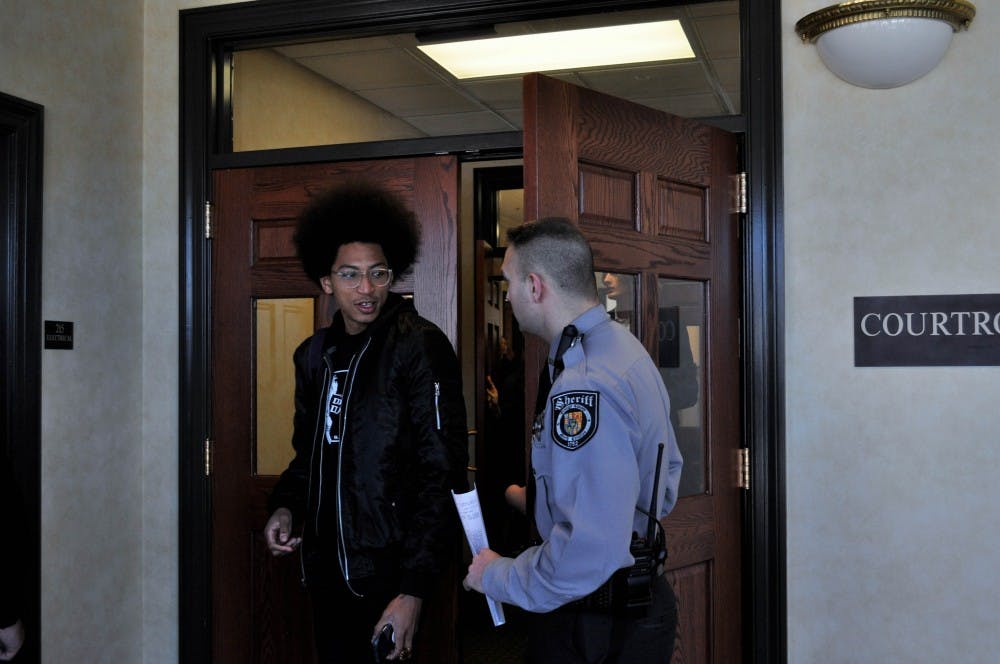In a county courtroom closed to the public, several cases were resolved Friday morning involving protesters that were arrested during a rally against Silent Sam on Sept. 8.
Judge Lunsford Long barred entry to everyone except law enforcement officials, court officials and defendants until 2 p.m. after a lunch break. Throughout the morning and early afternoon, protesters and media personnel waited in the halls outside the courtroom.
Of the people tried Friday, Ian Broadhead was found guilty of two misdemeanor charges, including resisting a public officer and violating the state’s anti-masking law while wearing a bandana during the rally. Broadhead received a prayer for judgement continued, meaning he cannot appeal the sentence, but will also not be punished for his crimes.
Julia Pulawski, 30, was found guilty of resisting a public officer and assaulting a UNC police officer. She is expected to appeal the verdict.
Jody Anderson, 21, was found not guilty of a misdemeanor charge of assault on a government officer.
Numerous other cases were resolved with rulings varying from dropped charges or deferred prosecution arrangements. Several defendants received mandatory community service and court fees.
The question of Long’s decision to close the courtroom to the public still looms large. Amanda Martin, an adjunct professor at UNC, nodded to the right of open courts as underlined in the state’s constitution, stating “all courts shall be open.”
“The right of access to court proceedings is rooted in both the U.S. and N.C. constitutions,” she said in an email.
Martin also highlighted the importance of open courts for citizens to know what goes on in a courtroom. She mentioned what Chief Justice Warren E. Burger said in Richmond Newspapers Inc. v. Virginia that dealt with the right to open courts.



